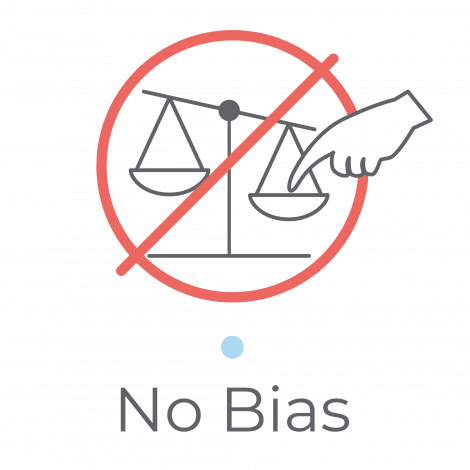Data-driven
illumr’s ROSA is a cutting edge AI tool that removes bias from datasets.
It improves fairness in decision making whilst allowing organisations to comply with global regulations such as GDPR anti-bias discrimination in automated decision making systems and EU regulations on gender-neutral insurance pricing.
ROSA empowers organisations with an ability to not only explain the bias removal process but also a distributed ledger so they can demonstrate to auditors how and when the de-biasing took place.


